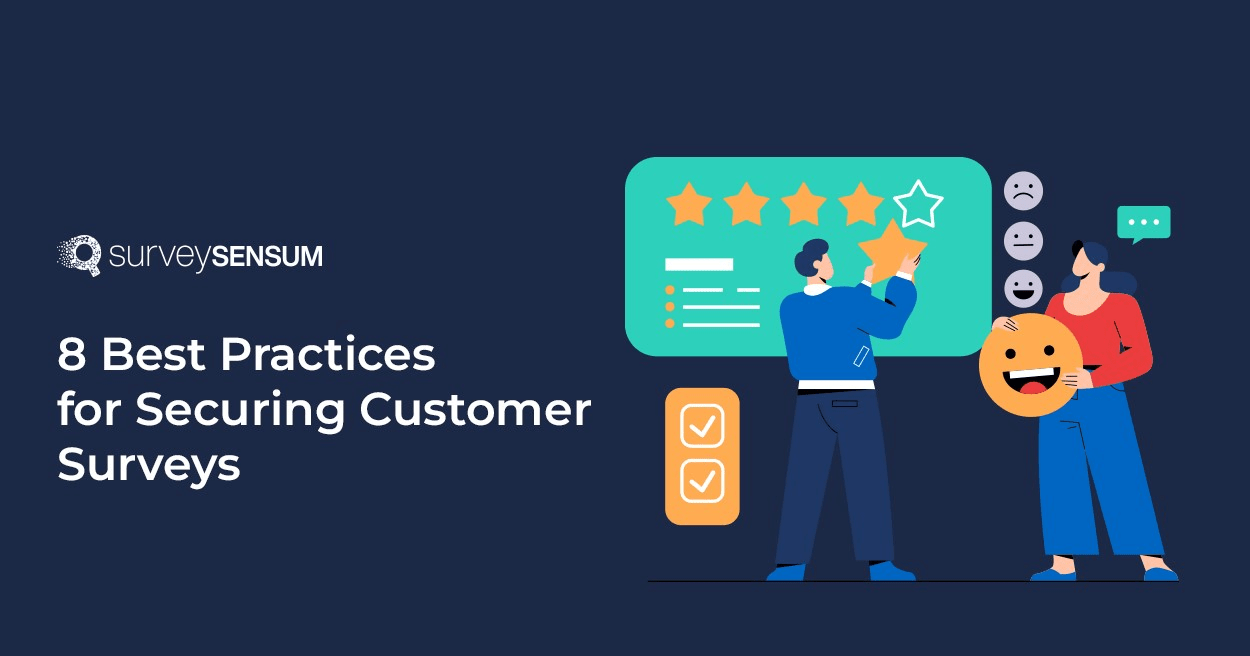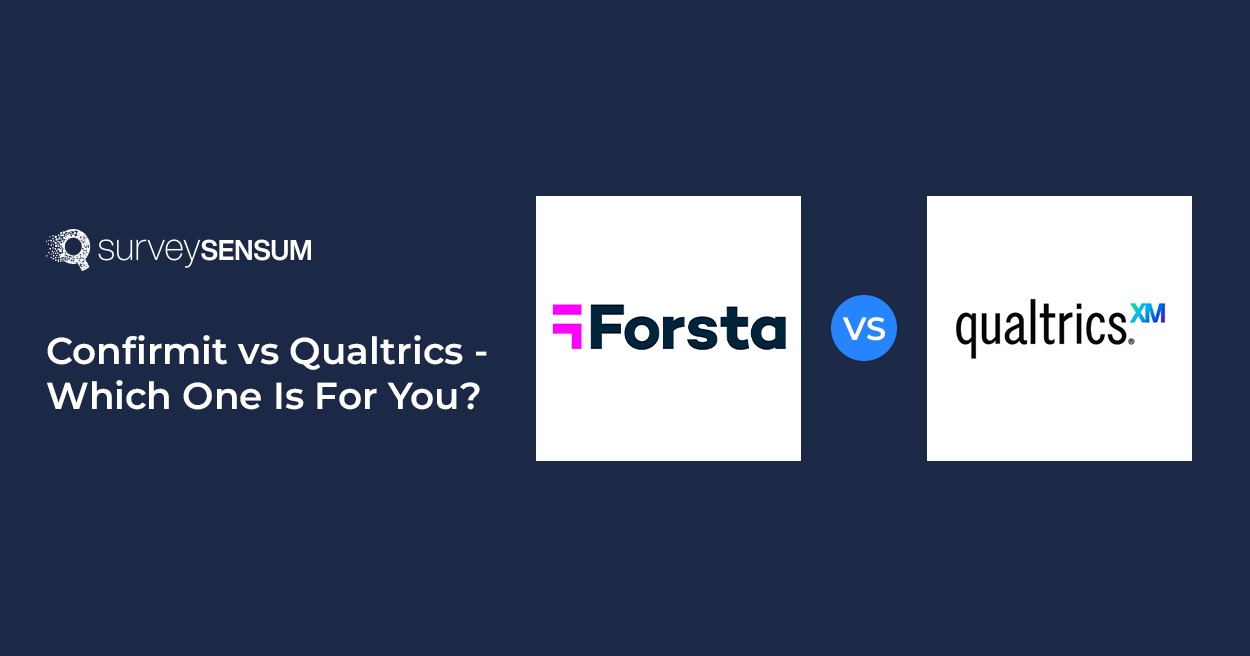

Online surveys, telephonic surveys, paper surveys, etc., are all about exploring the minds of a mass of people. These survey forms help in knowing the likes, dislikes, characteristics, and expectations of people and help gather concrete and accurate results for making vital business decisions.
Customer feedback surveys give you insights into understanding their needs and hence improve business products and services.
However, the problem is that customer feedback surveys can be vulnerable to malicious attacks.
Organizations have to open their eyes as early as possible to be aware of the risks associated with these surveys. That means it is important that you take care of all security measures to strengthen customer’s data. So, always take care of your customer’s data, as they trust you and your business.
What can you do about it?
So, you can ensure the security of your customer feedback surveys by following these best practices After ensuring the security of your survey forms, it’s equally important to consider the personal safety of individuals filling out these forms. Using a robust personal safety app can provide an additional layer of security and peace of mind, further enhancing trust in your data collection processes.
8 Best Practices for Securing Survey Forms:
1. Only Ask for the Essentials:
A survey form should be concise and to the point. Only the essential details of the customer as per the business requirement should be asked for, to minimize the risk of a data breach as well as other compliance and legal issues.
The survey forms should clearly indicate the purpose of data collection, ensuring transparency about the customer effort involved, as well as specifying the sharing of the information with the concerned party, if any, to the customers.
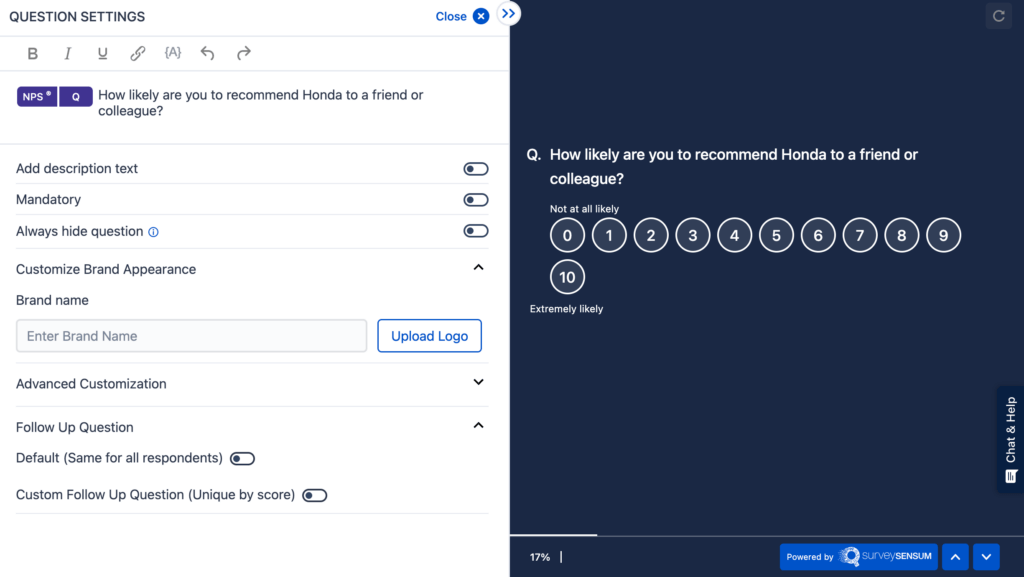
2. Take Customer Consent:
Prioritize customer consent for survey data collection since this is needed as per law. Phishing simulation training helps in enhancing their trust in your survey process. Implement robust cookie consent software to obtain clear and informed consent from users before collecting any personal data through surveys. This will go a long way in creating a loyal and truthful customer base. To ensure compliance with evolving privacy laws like GDPR, consider using a GDPR-compliant survey tool that transparently handles user data, stores it securely, and allows respondents to manage their consent easily.
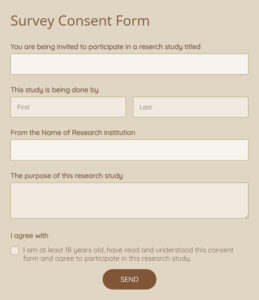
3. Encrypt Data:
Encrypt the entire website so that the customer data captured in the survey form is secured during the data transfer process as well as the data storage process. Customers trust surveys using HTTPS (hypertext transfer protocol secure) protocol since they are ensured that the data can be read by the intended recipient only.
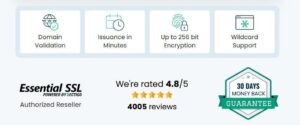
Example: Install a cheap Wildcard SSL certificate from CheapSSLShop to secure the form data with 256-bit encryption security and 2048-bit signature key length.
Explore Surveysensum to Keep Your Customer Surveys Safe
4. Conceal Sensitive Information
Sometimes survey forms require sensitive details of customers that need to be filled in like social security numbers, contact details, addresses, credit card details, passwords, and many more. So it is vital to conceal these details with asterisks when they are being typed. This prevents the sensitive stuff from being exploited by cyber-criminals.
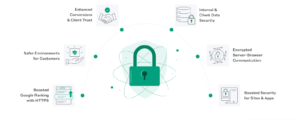
5. Secure File Uploads:
Many times, users need to add attachments (files) to the survey form. Hence apart from data security, file security should also be ensured. You can set a limit to the file length and size.
Example: Even the file type should be restricted to scanned files (.rtf, .pdf, .txt, etc.) and not scripts. It’s awesome that Dropbox is keeping its security layer as standard as possible. They are using multiple layers of protection and have created a secure infrastructure. Furthermore, Dropbox uses SSL certificates to secure their user data in transit between Dropbox apps and servers.
6. Implement Verification Challenges:
Implementing verification challenges like CAPTCHA and reCAPTCHA helps in preventing spamming.
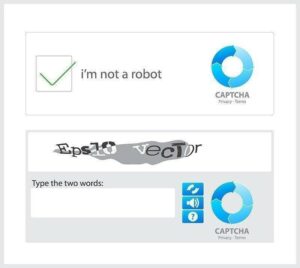
CAPTCHA helps prevent ad spammers and bot-powered attacks that permit SQL injection attacks into vulnerable forms. reCAPTCHA is an advanced version of the above, which instantly identifies and blocks bots.
7. Ask for Input Validation:
Your survey form should check for input validation to prevent malicious input.
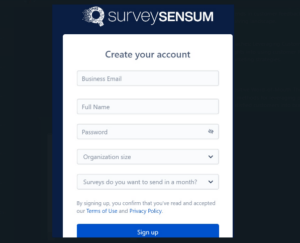
Example: An email field in the survey form should capture valid email addresses only and not codes/sentences. SurveySensum is one such company that gathers accurate customer information by using a Field Verification tool, ensuring a high level of customer satisfaction.
This form field verification tool auto-verifies the form fields, thus enhancing qualitative data and preventing errors.
8. Implementing Security Policies & Procedures:
Customer survey form security should be the topmost priority for companies who are dealing with customer data. These companies should implement strong security solutions and policies to ensure form and data security.
Example: The policies should include handling/storing of data, access control, penetration testing, security testing, etc. for securing customer survey information.
Apart from implementing these best practices, some other safety tips include:
- Use an Enterprise Password Manager
- Implementing Data Validation
- Input Monitoring and testing
- Investing in Security Solutions and a reliable vpn service. In certain cases, a free VPN service may be sufficient for basic needs, though Cybernews highlights important limitations to consider when evaluating such options.
- Using sustainable data center providers to ensure server uptime. Use identity and access management solutions such as Balkan, Keycloak or Okta.
Once your survey forms are secure and you’ve gathered quality customer feedback, the next critical step is to act on those insights. A well-crafted post-survey action plan helps turn data into tangible improvements that impact customer experience and business growth. Here’s how you can create an effective post-survey action plan.
SurveySensum is an ideal example of the same since it ensures that customer data is exchanged over a secure HTTPS connection and that all the user logins are secured via SSL. This firm also ensures that the survey data is secured in the storage location (SOC 2 accredited data centers) wherein security best practices are implemented and adhered to.
Wrapping Up:
Conducting survey research via online survey sites like Branded Surveys, i-Say (IPSOS), OnePoll, etc. for gathering customer information works wonders since they are already safe and secured.
But when survey forms are placed on your site, they need to be secured. Varied surveys require different ways of handling customer information and different security levels which need to be adhered to.
For example, anonymous surveys need to assure customers about their data privacy, whereas online surveys should refrain from being linked to emails/individuals.
In a nutshell, all the survey forms should be secured with data encryption and access should be limited to prevent unauthorized personnel from accessing or misusing it.
Backup of customer data stored on the storage server, as well as VM backup for virtual server environments, should be taken and the same should also be secured with firewalls, anti-virus software, and encryption algorithms.
Last but not least, the survey data should be deleted if it’s unnecessary. Ultimately, unnecessary survey data should be deleted to prevent customer privacy. If you are seeking a reliable and secure survey platform, you can use SurveySensum, whether you are a small or big business. Get in touch with us to learn more.






